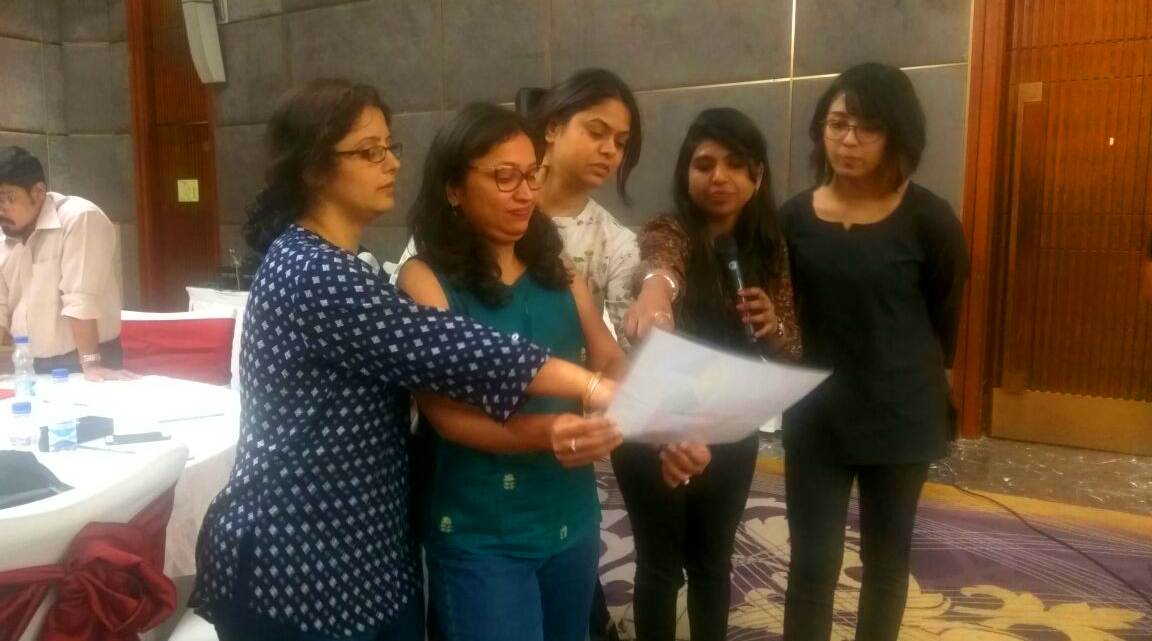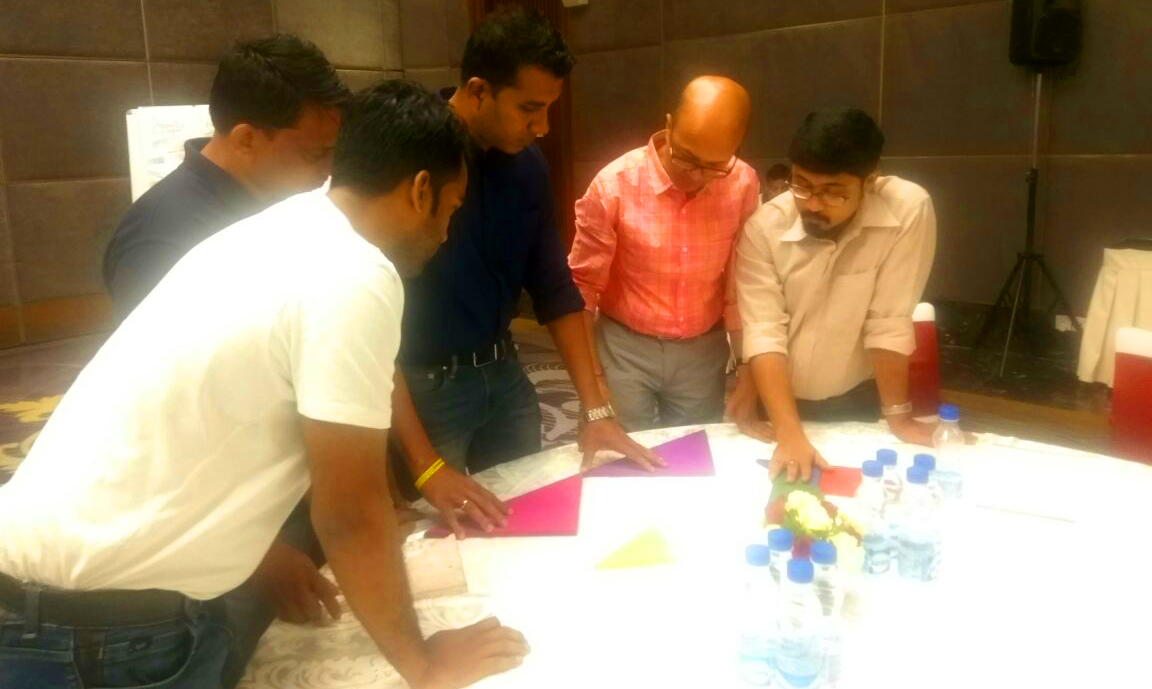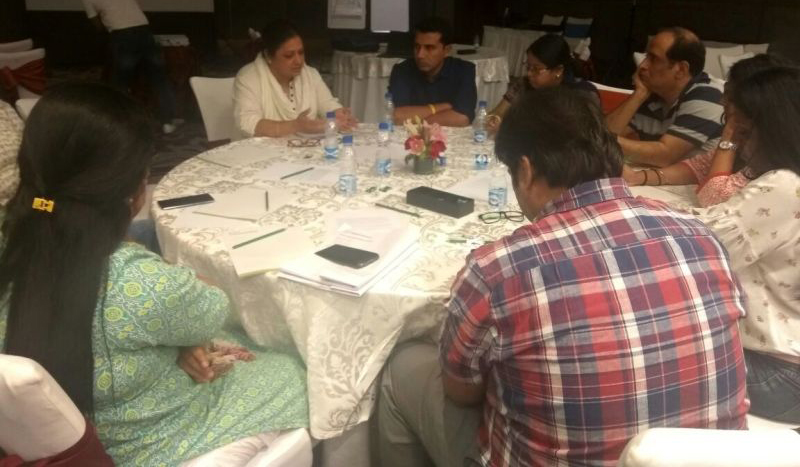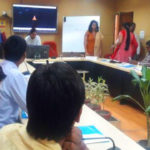On Friday, 27th April, Ms Kamlesh Premi and Ms Pratishtha Arora went to Sightsavers India for a one day training with 48 participants, from Bengaluru, Mumbai, Ranchi, Delhi, Bhopal, Kolkata and Jaipur. In 2015, Centre for Social Research had conducted a gender sensitization training with Sightsavers India, and their partners in Delhi. Some of the participants had attended the previous training, and some elements of this workshop acted as a refresher course for them.


The training began with a round of introduction of the organization, partners and the trainers. A session was taken on the conceptual framework of gender, sex, stereotyping, institutionalization, patriarchy and power, which was further emphasized through an activity ‘Roll the ball’. To draw their perception on the conceptual note, the trainer received responses on the basic terminologies like gender, sex. patriarchy, power, transgender, other, masculinity, femininity, homosexuality, sexual violence, migrants, harassment, workplace.
.@GenderTrainings with @SightsaversIN today! #SocialChange #FridayFeeling @ranjanakumari @GenderCrusader pic.twitter.com/p4L1Eksm6l
— CSR (@CSR_India) April 27, 2018
The discussion was followed by drawing on the importance of communication and behavioural patterns at the workplace. The Tanagram activity further strengthened these concepts.


The next session was on the Sexual Harassment of Women at Workplace Act, 2013. Many of the partners were unaware about the law as well as its functioning. The trainers spoke about the law, reflecting upon the Vishakha case in the constitution of the law. Many participants had questions regarding the various situations that are likey to occur in a workplace. Some of the questions asked during the discussion were:
a) How does the law support men?
b) Scenario – if two colleagues are traveling together and post the work they wish to go out for leisure and any incident takes place during this time, will this account to Sexual harassment?
Based on these, a discussion took place on various case studies which were shared with the larger group.
The final session of the training was dedicated for the members of Internal Complaints Committee and the Human Resources Department. Ms Kamlesh Premi took the session, where she drew on the role of ICC. She also discussed about the constitution of ICC and the timeline on how and when a case can be reported.


Drawing from the training needs assessment of the organization, it was quite evident that many of the participants were unaware about the Sexual Harassment Law. It was also observed that there is a need of gender sensitization training at the workplace, and such a training would be beneficial to all.




